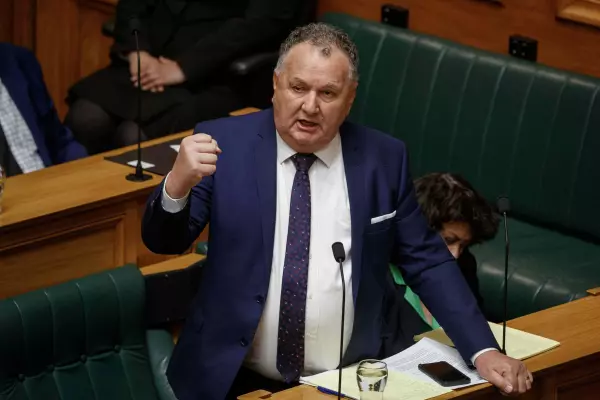In September, Grant Straker was mulling moving his family abroad for six months so he could travel more easily across the world to support his business’ growth.
The chief executive officer (CEO) of NZ-based ASX-listed Straker Translations decided against the plan because the government had shown signs of a plan for business travel.
“We didn't do it because they said by Christmas, January, we'll be opening up the borders to business and they were going to do business MIQ … and then, of course, they didn’t do it,” Straker told BusinessDesk.
“In hindsight, it’s probably something that we should have done … I’ve got some really significant global deals and I need to go and see some of these customers.”
The lack of business travel has hampered the CEO as his colleagues based in Amsterdam and Philadelphia travel freely around the globe.
Other technology company chief executives Neil Cresswell of Portainer and Mario Wynands of PikPok flew from NZ on business last year without an MIQ spot secured for their return such was the need to meet customers and hire offshore.
“If you go back 12 months ago, pretty much the rest of the world started to open, and I know the government spins it but … I know exactly what is going on in other countries at a business level,” Straker said.
“Some of the commentary is businesspeople want to do this [travel for work] because they just want to make money.
“If I’d wanted to make money, I would have sold my company bloody years ago and I’d be sitting on a beach in Fiji. We do it because we’re trying to build businesses from New Zealand.”
In November, the government said fully vaccinated NZ citizens and residents could return from Australia and self-isolate from Jan 17, and from any country on Feb 14. Those dates have been pushed out, and on Thursday the government is expected to announce border reopening plans with new dates.
A 50-place exporter allocation MIQ pilot and a 150-place self-isolation pilot for businesses were run late last year to help inform border opening decisions.
Straker said if the dates announced Thursday for business travel are in May or June then it would be a “major tragedy for New Zealand”. Due to border uncertainty and hiring issues, he recently decided to set up an outsourcing centre in the Philippines.
“Most businesses, most networks can take a bit of bruising, some soft tissue damage, but when it starts to become structural, I think the government has got some real policy issues that they need to deal with.”
Foot in the door
While Straker is very pleased with the new offshore staff, it’s a permanent structural change that he’d rather have set up within NZ.
“It’s just taking away all that momentum we had to drive the tech sector here, to drive more engagement, and now it’s just not an appealing place to do it.”
The company made its ninth acquisition last month of a European translation firm, but now has no further M&A plan in the next six to nine months. Straker’s focus is instead firmly set on major enterprise customers to grow the business following on from its contract won with IBM last February.
Such large companies want to improve their supply chain efficiency and so are attracted to Straker Translations’ use of AI and automation, he said.
A current successful strategy is winning national or departmental translation contracts of a large business to make Straker Translations more attractive to the rest of the organisation.
In this way, Straker said current contracts of about US$100,000 per year have the potential to be grown to $500,000 per year.
“Once we can get inside the door of these large companies and we've got a reasonable amount of work, other business units inside there, look at the efficiencies … and then we get the opportunity to tender for a lot more business.”
Momentum
This week, Straker Translations announced revenue of $15m for Q3 of FY22, 99% growth over the previous corresponding period, a figure Straker said would have been achieved about one or two quarters earlier if it weren’t for the pandemic.
The company also reported positive adjusted earnings before interest, tax, depreciation, and amortisation (ebitda), no debt, and cash of NZ$17.5m.
Shares were up and trading at AU$1.64 on Wednesday, but Straker said he doesn’t have a share price target in mind as setting such a goal is not healthy.
He does have another goal though. Since its 2018 IPO, Straker Translations has been set on achieving $100m in revenue. Straker said this is a realistic goal and that the latest result, which said the company had already signalled to the market, has shown investors the company knows what it is doing.
“The lights go on with some of these investors and they go, ‘right, these guys are actually delivering what they said they would.’”
He said he understood any scepticism because the company’s approach to translation technology, which uses artificial intelligence (AI) to aid human work, is ahead of the curve.
In the early days of the business, the company would go to translation service conferences and feel like “Uber turning up to a taxi conference”.
“We were saying AI is going to change the game, there’s going to be far more consolidation and more automation. At the time, we were literally kind of abused.
“AI … doesn’t replace humans, but it is going to make them more productive.”
The company has about 240 employees globally.
This article has been updated to reflect accurate contract figures.















